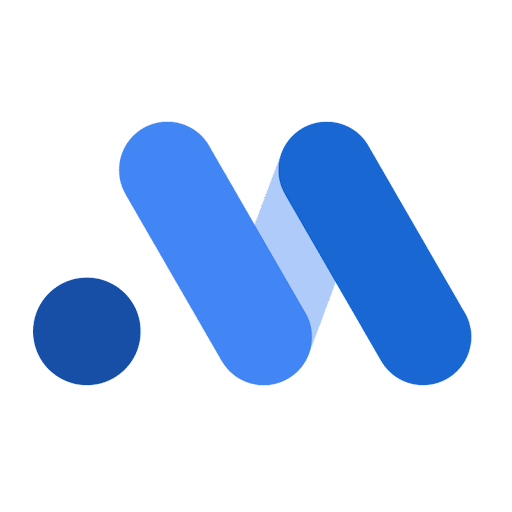サービスに関する一般的な情報
ライブラリは無料ですか?
はい。このライブラリは無料で使用できます。また、GitHub でオープンソース化され、だれでも利用できるようになる予定です。
このライブラリを使用するには、データを Google と共有する必要がありますか?
Google は、お客様の入力データ、モデル、結果にアクセスすることはできません(MMM データ プラットフォームを通じて提供される Google のメディアデータは除きます)。Google の MMM データ プラットフォームからデータをリクエストした場合、それが唯一、Google がアクセスできるデータになります。ただし、そのデータが実際にモデルに含まれているかどうかは Google には把握できません。実際のモデルの入出力は、Google 担当者と共有しない限り、完全に非公開です。
LightweightMMM からの移行
現在 LightweightMMM を利用している場合、メリディアンのデータ入力を構築するために追加の作業が必要ですか?
メリディアンの新技術を最大限に活用するには、次のようなデータ ディメンションを追加していただく必要があります。
- リーチとフリークエンシー
- テスト
- Google の検索ボリューム(GQV)
これらのディメンションなしでメリディアンを実行することもできますが、新技術は利用できません。詳細については、LightweightMMM からの移行をご確認ください。
データの収集とクリーニング
MMM データ プラットフォームのインターフェースにおいて、全種類のデータ(パフォーマンス、YouTube のリーチとフリークエンシー、Google 検索ボリューム)を同時に収集することはできますか?
パフォーマンス データと YouTube のリーチおよびフリークエンシーのデータは、別々にリクエストする必要があります。リクエスト ワークフローの詳細は、MMM データ プラットフォームのアクセス権メールに含まれているユーザーガイドに記載されています。
リクエストできる GQV データの範囲はどこまでですか?
Google 検索ボリュームの出力には次のデータが含まれます。
- QueryLabel - ブランド名または一般的な語句
- ReportDate
- TimeGranularity(Daily、Weekly_Sunday、Weekly_Monday のデータをリクエストできます)
- GeoCriteriaId
- GeoName
- GeoType
- IndexedQueryVolume - すべての検索ボリューム データがインデックスに登録されます。検索ボリュームには元の数値は含まれません。
Google 以外の検索データに GQV 手法を適用できますか?
通常、Google 以外の検索エンジンからのオーガニック検索ボリュームは利用できません。その他の方法については、検索広告の交絡因子としての検索ボリュームについてをご確認ください。
MMM データ プラットフォームからの GQV データ取得が推奨されるのはなぜですか?
MMM データ プラットフォームの GQV レポートは MMM 専用に構築されており、GQV のパフォーマンスをモデルに適した粒度で包括的に把握するうえで役立ちます。MMM データ プラットフォームでは、広告主様と<>国の組み合わせに応じて一貫した指標値が使用されるため、モデルを更新するたびに GQV データを簡単に更新して、パフォーマンスの推移を正確に比較できます。GQV のリクエストとパフォーマンス データのリクエストが単一のプラットフォームでリンクされているため、MMM データのリクエストで指定されたブランドとブランド関連キーワードの一貫したマッピングを Google が提供できます。
他のソースの検索クエリのデータは、交絡因子としてメリディアンで使用できますが、MMM のユースケースでは制約がある場合があります。たとえば、Google トレンドでは検索データを正規化し、トピック別にクエリを集計して、レポートで検索のサンプルを使用します。これはトレンドの分析情報を迅速に生成するうえで有効ですが、ブランドに固有で一貫性のあるデータがモデルに適した粒度で提供されるように、メリディアンでは MMM データ プラットフォームから GQV を取得することをおすすめします。
モデリング
特定のメディア要素について、違う期間に関連付けられた異なる事前分布を設定するにはどうすればよいですか?
これに最も近いものは roi_calibration_period 引数です。MMM の調整に関するホワイト ペーパーのセクション 3.4 に基づき、費用で重み付けしたテストの平均費用対効果を計算し、roi_calibration_period を渡してテストの 4 四半期と一致させることをおすすめします。テストの標準エラーが大きく異なる場合は、それに応じてテストの重み付けをさらに調整することをおすすめします。詳細については、費用対効果の調整期間の設定をご確認ください。
ノットの値に時間の事前分布を入れることはできますか?
メリディアンは、ノットの値の時変事前分布をサポートしていません。
メリディアンでは、時間とともに変化するメディア効果をどのように処理できますか?
メリディアンでは、データをパーティショニングすることで、時間とともに変化するメディア効果をモデル化できます。そのためには、チャネルのデータを手動で個別の期間に分割し、個別のチャネルとしてモデル化する必要があります。たとえば、2024 年と 2025 年でチャネルのパフォーマンスが異なると考えられる場合は、データセットに 2 つの新しいチャネルを作成し、一方には 2024 年のデータのみを含め、もう一方には 2025 年のデータのみを含めます。
ただし、期間をあまり細かく分けるとチャネル数が急増する可能性があるため、注意が必要です。チャネルが多すぎると、メリディアンが見積もる必要があるパラメータの数が増え、限られたデータでモデルがシグナルとノイズを区別することが困難になります(詳しくは、必要なデータ量をご覧ください)。極端なケースでは、チャネルが多すぎるために、モデルが識別できなくなり、収束しなくなる問題が発生する場合があります。
事後分布の抽出の DataFrame を取得するなど、回帰の詳細な分解情報を取得するにはどうすればよいですか?
事後分布のサンプルは inference_data オブジェクトにあり、この配列は必要な DataFrame に変換できます。docstring を使用してデータサンプルにアクセスするには、meridian.model.model.Meridian をご確認ください。
メリディアンでチャネル間の相乗効果を測定することはできますか?
メリディアンでは、この種の分析はサポートされていません。
メリディアンで費用対効果を時系列で確認することはできますか?
各メディア チャネルの増分結果の推移を確認して、費用対効果を計算できます。
-
Analyzer().incremental_outcome()で増分結果の推定値を確認します。 -
selected_timesオプションを使用して、対象の週を選択します。 - その期間中の費用で割ります。これにより費用対効果が算出され、個々の期間の効果がより正確にわかります。
重要: 費用対効果の推移を追跡する場合は、モデルの係数が時間とともに変化しない場合でも、費用対効果は時間とともに変化する可能性があることを考慮してください。これは、費用対効果が時間とともに変化する可能性のある他の要因に依存しているためです。たとえば、Hill 曲線は、メディア マーケティングのリターンが非線形で減少していく様子をモデル化したものです。そのため、特定の時点でのメディア マーケティングの量が費用対効果に影響する可能性があります。また、メディアの割り当ては地域や時間の経過とともに変化し、効果も異なります。また、メディア マーケティングのコストも時間とともに変化する可能性があります。
メリディアンの階層モデル構造は、地域以外のカテゴリ変数にも使用できますか?
メリディアンの階層型モデリング構造は、地域レベルのモデリング用に設計されており、重要なメリットがあります。階層変数として地域の代わりに別のカテゴリ変数を使用することもできますが、一般的には推奨されません。別の階層変数を使用する場合は、この変数で KPI とメディアの両方の単位を層化できる必要があります。
通常は機能しない階層変数には、次のようなものがあります。
- プロダクト(ハロー効果あり)。広告チャネルが複数のプロダクトの KPI に影響する可能性があると思われる場合は、「プロダクト」を階層変数として使用しないでください。チャネルがプロダクト固有のものではなく、ブランド全体を対象としている場合は、複数のプロダクトに影響を与える可能性があります。また、プロダクト固有の広告キャンペーンは、いわゆる「ハロー効果」により、他のプロダクトの KPI にも影響を与える可能性があります。
- 販売チャネル(オンラインと小売など)。メディア単位は通常、単一の販売チャネルに固有のものではありません。
- 広告キャンペーン。メディアの単位は多くの場合、キャンペーンごとに層化できますが、KPI をキャンペーンごとに層化することはできません。
KPI とメディアの両方の単位を地域以外の変数で層化できる場合でも、以下の階層モデルの仮定が適用可能かどうかを検討することが重要です。
- 階層モデルは、カテゴリ間で情報を部分的にプールして、介入変数とコントロール変数のモデル係数を推定します。時間効果(トレンドと季節性)、アドストック、収益逓減パラメータなど、他のモデルのパラメータは、カテゴリ間で共通(完全なプーリング)であると想定されます。KPI とメディアの単位は地域間で基本的に同じ解釈になるため、これらの仮定は通常、地域階層で理にかなっています。
- 共通の時間効果、アドストック、収益逓減パラメータの仮定は、KPI とメディアの両方の単位が各カテゴリでほぼ同じスケールである場合に、一般的により適しています。地域モデルの場合、これを実現するには、KPI とメディアの両方の単位を人口でスケーリングします。他の変数については、人口の代わりにどのスケーリング変数を使用すべきか、また、KPI の単位、メディアの単位、またはその両方に適用すべきかどうかはあまりはっきりしていません。
- 安定した単位のトリートメント値の仮定(SUTVA)では、1 つの単位でのトリートメント(広告)の露出がその他の単位に影響しないことが求められます。この仮定は、通常、地理的なトリートメントの単位に対して妥当です(完全に当てはまることはありませんが)。地域以外のカテゴリでは、メディア効果のカテゴリ間の汚染がより多く発生する可能性があります。
地域以外の階層変数を使用することを検討している場合は、以下の点を考慮してください。
- コントロール変数は、各カテゴリ内で差異がある限り、カテゴリ間で同じ値を取ることができます。ただし、時間効果のモデル化にノットをすべて使用するか、ほぼすべて使用すると、収束に関する問題が発生する可能性があります。
-
地域以外のカテゴリ間で残差分散が同じでない可能性があるため、
ModelSpecでunique_sigma_for_each_geo=Trueを設定することを検討してください。 -
地理階層モデリングは最も一般的なユースケースであるため、メリディアンの命名規則では階層変数に「geo」というラベルが付けられます。CSV データローダを使用している場合は、
load.CoordToColumnsで階層変数に「geo」列のラベルを必ず付けてください。 - メリディアンでは「population」変数が必要になります。階層変数が地域でない場合は、すべてのカテゴリレベルで 1 に設定できますが、別の値でスケーリングする方が適切な場合もあります。メリディアンでは、KPI とメディアの両方の単位が人口で自動的にスケーリングされます。変数をスケーリングしない場合は、人口でスケーリングした後に元の値が取得されるように、入力データ列に人口を乗算する必要があります。
解釈と最適化
設定した入札単価目標に基づいて入札戦略の費用対効果を測定できますか?
Google の MMM データフィードには、キャンペーンごとの入札戦略タイプ(コンバージョン数の最大化や目標広告費用対効果など)が含まれますが、入札目標自体は含まれません。このディメンションを表示するには、Google 広告から入札戦略レポートを直接取得するか、Google アカウント担当者と連携してカスタム データ ソリューションを利用します。
メリディアンを予測に使用できますか?
メリディアンは、予算の最適化や、将来の仮定の予算シナリオにおける増分結果の推定など、将来のシナリオ プランニングに使用できます。メリディアンは、予測ではなく因果推論用に設計されています。そのため、Meridian を使用して将来の未加工の結果を予測することはできません。詳しくは、メリディアンが結果を予測しない理由をご覧ください。
